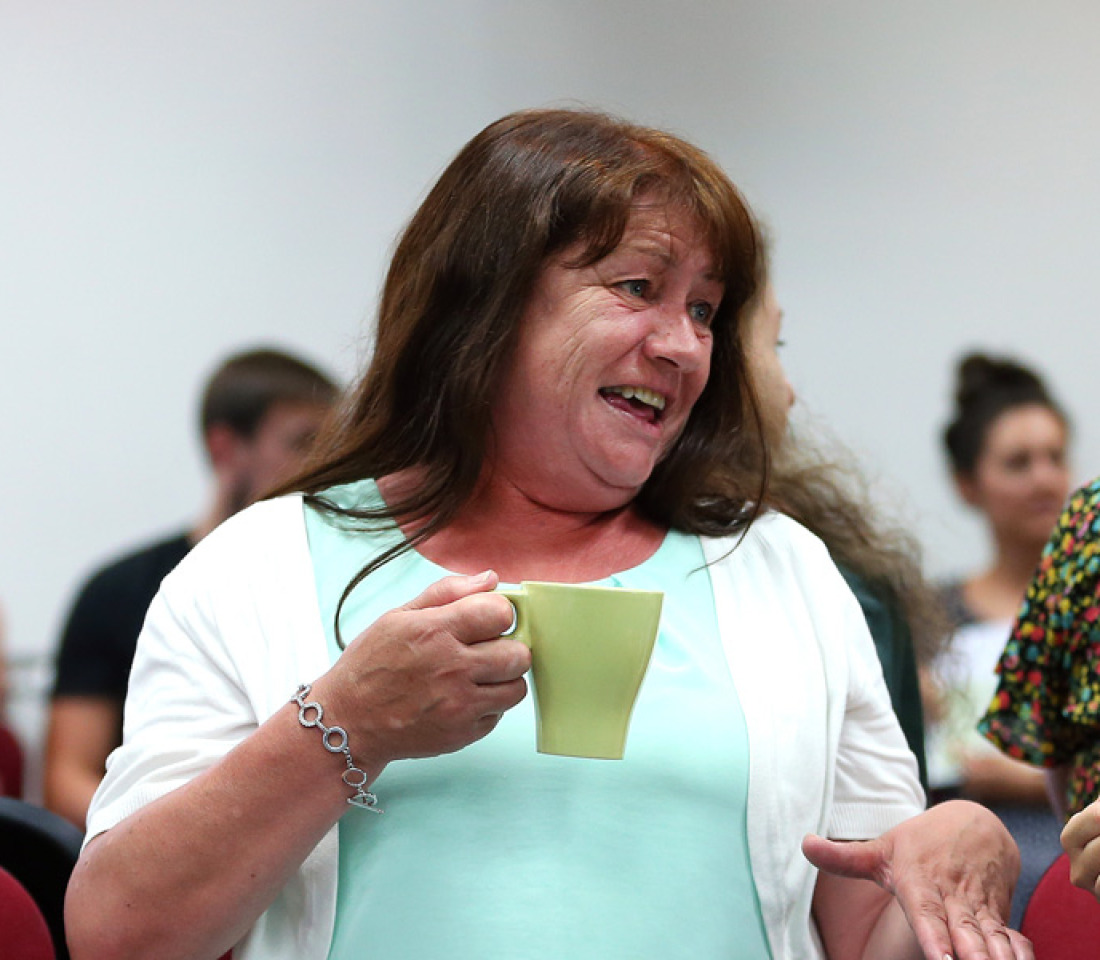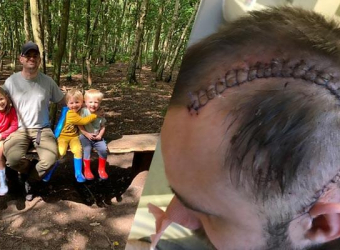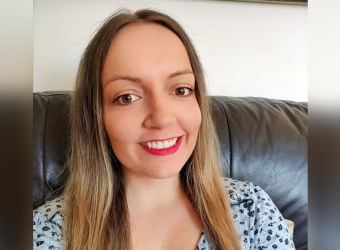
Sarah’s brain injury story: “My head turned 180 degrees – The Brain Charity freed me from staring at four walls”
In 2014, while working as a teaching assistant, Sarah suffered a head injury which caused a serious brain trauma.
At first there didn’t seem to be much wrong other than a headache that persisted through the week.
Five days after the injury, Sarah woke up late and rushed out of her house.
When she sat in the driver’s seat of her car, she realised something was very wrong – her head had twisted 180 degrees and she was staring at her rear view window.
The 37-year-old said: “I could feel this searing pain through my shoulders and my back.
“I was wondering why my windscreen had black lines across it, until I realised I was looking out of my back window.
“It was quite difficult to turn my head back around and keep there but after a while I managed it, though the pain did not go away.”
At first only Sarah’s neck and walking were affected, but over the course of the next year she developed spasms.
She also began struggling with optical neuralgia, pressure on the occipital nerve which runs through the neck up into the scalp, causing tremors, fits, paralysis and fatigue.
Sarah said: “I went to A&E every week for three months because the pain wouldn’t go away and I was still getting neck spasms.
“I was told it could have been a slipped disc, a muscle injury or having slept awkwardly. It changed each time.
“I was in agony constantly, but I still wasn’t diagnosed for at least another two years.”

Sarah with The Brain Charity’s art tutor and her artwork
Eventually, Sarah was diagnosed with dystonia – a condition which causes involuntary muscle spasms.
These are most prominent in her neck and shoulders, and this is what had caused her head to rotate.
Doctors also told her Sarah had functional neurological disorder (FND). This is the name given for a variety of medically unexplained neurological symptoms which appear to be caused by problems in the nervous system but which are not caused by a physical disease.
Sarah’s conditions changed her life; she could no longer drive do the job she loved or take part in the same social activities as before, and lost touch with many of her friends.
Before coming to The Brain Charity she felt isolated – she hardly left the house as she was scared of people staring at her and judging her for the way she walked and moved.
The 37-year-old, from Fazakerley, Liverpool, said: “I used to be quite fiercely independent – so to go from doing so much to not being able to do anything was the hardest transition.
“I felt a real sense of loss for the life I’d had before.”
Sarah was struggling to cope with how isolated she felt, so her neurologist suggested she come along to The Brain Charity.
It took her nearly a year to pluck up the courage to drop in, but she was instantly welcomed and soon joined the craft club.

Sarah enjoys expressing her emotions through artwork now on display at The Brain Charity
Sarah also received help getting Carer’s Allowance for her partner John, and to be rehoused to a bungalow as she could not use stairs safely anymore.
She said: “The Brain Charity has supported me through so many situations.
“They’ve helped me with applications that I could have done wrong and then never got the important help I’ve needed. It’s nice not to be on your own.
“Coming here has given me the chance to try new things.
“There’s lots of things I can’t do anymore but The Brain Charity has freed me from staring at four walls.”
Due to spasms that left her unable to breathe, most nights Sarah was getting no more than 2 hours sleep.
In Autumn 2019, John woke up to find she had turned blue and stopped breathing as a spasm had closed her throat.
The only solution was a specialist cyclo-therapy bed which cost £10,000.
The Brain Charity helped Sarah launch an appeal to raise the money in November 2019 and assisted her to apply for grant funding.

Sarah’s specialist bed
Sarah said: “No one has £10,000 after they’ve lost their career, and it had been years since I’d had a proper night’s sleep.
“It’s already made a huge difference to how my symptoms affect me. It’s been amazing and I’m so glad to have it.
“The Brain Charity has given me such incredible support and I’m so grateful for it.”
Categories: Social activities, Welfare benefits
Published: 15 March 2021
















